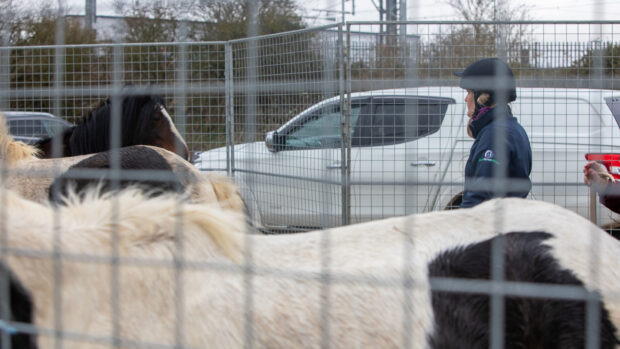“Grave concerns” have been highlighted in a survey on the effects of Covid-19 on horse rescue organisations.
The study, run by the National Equine Welfare Council (NEWC) and the Association of Dogs and Cat Homes, was sent to 37 NEWC members and 126 other equine rescues to assess the impact of the pandemic on such organisations.
A spokesman for NEWC member World Horse Welfare, which analysed the results of the survey, said the findings “fuelled fears” of a worsening equine welfare crisis. He added the survey showed there had already been a significant negative impact on rescue organisations, and it also highlighted the full effect of Covid-19 will likely not be felt until winter, when numbers of welfare cases are expected to rise further as caring for equines becomes more resource-intensive, with increased costs.
“What we have experienced here at our four rescue and rehoming centres has been repeated across the other horse rescue organisations,” said Roly Owers, World Horse Welfare chief executive.
“Even with no visitors, diminished income and no rehoming we were still looking after more than 350 animals daily. Thankfully, since rehoming began again we have rehomed record numbers, but we are expecting to see increasing numbers of welfare case admissions in the coming months.”
Mr Owers said there are around 850,000 equines in the UK, and before the pandemic at least 7,000 of these were considered to be ‘at risk’ with regard to welfare.
“There are a number of drivers, including over-breeding across the sector and a lack of enforcement contributing to an equine crisis which has lasted almost 10 years and should now be recognised as a failure of the system. Covid-19 will likely exacerbate this, potentially placing additional pressure on an equine welfare sector that is already operating at capacity,” he said.
“More than 83% of rescues reported that restrictions have had a negative impact on fundraising, with more than half reporting a reduction in income of over 50%. Organisational size was no immunity to impact, with all organisations from the RSPCA to the smallest rescue centres under intense pressure.”
Four in five respondents of the survey had closed their premises to the public and shops, a key source of income for many, had closed.
“More than 40% had furloughed some staff and although many equine rescue centres rely heavily on volunteers, more than 70% reported they had had to reduce or stop all volunteer help,” said Mr Owers.
The spokesman added at the time of the survey two-thirds of centres had reduced or stopped rehoming equines and although most have started rehoming again, almost all centres are already at, or above, full capacity.

Major equine welfare charity to remain closed to the public until 2021 *H&H Plus*

Fund set up to help equine charities with ‘inevitable tidal wave of welfare cases’
‘There is no capacity within the UK’s equine rescue system so it is vital, as we start to rehome animals

Subscribe to Horse & Hound magazine today – and enjoy unlimited website access all year round
“Despite this situation, 62% of equine rescues continued taking the most urgent welfare cases during lockdown,” he said.
“The equine welfare sector continues to work collaboratively to ensure effective identification of concerns and practical solutions to the welfare challenges that have, and will, result from the pandemic. NEWC and World Horse Welfare have helped establish the equine emergency rescue fund with the PetPlan Charitable Trust, which has given out its first grants to welfare organisations, with further funding rounds planned for at least July and October and possibly for longer.”
NEWC and member organisations are working with the UK government and the devolved administrations to “press home the gravity” of the situation and ask for their support, including grants for rescue organisations and ensuring adequate funding is available to local authorities so they can support welfare organisations where needed.
We continue to publish Horse & Hound magazine weekly during the coronavirus pandemic, as well as keeping horseandhound.co.uk up to date with all the breaking news, features and more. Click here for info about magazine subscriptions (six issues for £6) and access to our premium H&H Plus content online.




